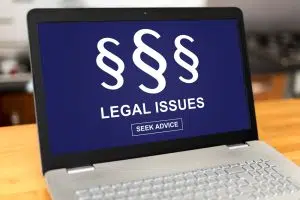
This is because alcohol consumption can lead to public disorder and other problems, and it is therefore important that only responsible retailers are allowed to sell it. In addition, convenience stores need to make sure that they are not selling counterfeit goods, as this can lead to heavy fines.
They also need to be aware of food safety regulations, as selling out-of-date food can pose a serious health risk. Finally, it is important to remember that convenience stores are businesses, and so they need to comply with all the relevant business laws and regulations.
By being aware of these legal issues, convenience stores can ensure that they trade responsibly and avoid any potential problems.
In order to register in time, you should contact your local authority early in your planning process. Registration is free.
Alcohol licensing
Alcohol licenses are required if you want to sell alcohol. Regulations and application procedures vary from region to region in the UK.
Alcohol sales are regulated by the Licensing Act in England and Wales. Any convenience store selling alcohol from premises with a premises licence requires a personal licence, and premises with a premises licence require a premises licence. An accredited qualification is required for anyone applying for a personal licence. These licenses can be obtained from your local authority. More information can be found on the Gov.uk website.
Licences for alcohol are granted by county courts in Northern Ireland. As far as alcohol off-sales are concerned, Northern Ireland has a set number of off-licences, and no new licenses are being granted. Therefore, you’ll generally need to find someone willing to give up or sell their license. The NI Direct website has more information about alcohol licensing in Northern Ireland.
Personal and premises alcohol licenses are granted by local Licensing Boards in Scotland. In accordance with licensing legislation, anyone who sells alcohol must be trained. The Scottish Government website has more information about alcohol licensing in Scotland.
An alcohol licence application will be reviewed carefully by the granting authority, who will take into account whether the applicant and the premises are suitable for selling alcohol. Professional licensing professionals may be able to speed up the process and ensure that the application is successful, although they will charge fees.
Tobacco retailing
The Scottish Tobacco Retailers Register must be filled out by all tobacco retailers in Scotland. The Scottish Tobacco Retailers Register allows you to register online. Belfast City Council is responsible for registration in Northern Ireland. Wales created a tobacco retailers’ register during 2017 under new legislation.
A Facility Identifier Code and an Economic Operator Identifier Code are required for all retailers selling tobacco products.
Selling fireworks
Trading standards departments or fire authorities (depending on your location) in Great Britain or the Department of Justice in Northern Ireland must be notified if you plan to sell fireworks. In Great Britain, fireworks sales licences are required if you are planning on selling fireworks outside of the usual fireworks seasons – Guy Fawkes night, Diwali, New Year, and Chinese New Year. Visit the RoSPA Safer fireworks website for more information about UK firework licensing.
Other matters
You will need a Music Licence from PPL PRS Ltd if you plan to play background music in the store. Licences are subject to an annual fee.
To employ young people for a newspaper round, you must register with your local authority.
Cigarettes and tobacco products
It is a legal requirement to have a UK duty paid fiscal mark on any cigarettes or packets of hand rolling tobacco you sell. New regulations require standardised packaging for all tobacco products. Products (or advertising) related to tobacco cannot be displayed at the point of sale.
The Economic Operator Identifier Code and the Facility Identifier Code must be obtained by all retailers who sell tobacco products.
Sale of alcohol
Alcohol sales are regulated by:
- Licensing Act in England and Wales
- Licensing (Northern Ireland) Order
- Licensing (Scotland) Act in Scotland
Licences and compliance with legislation will be needed if you intend to sell alcohol. Throughout the UK, you can find more information about alcohol licensing at:
- The Government website
- NI Direct
- Scottish Government website
Customers – age-related sales
Do not do any of the following:
- Sell tobacco products (including e-cigarettes) to minors under 18
- You cannot sell fireworks in Great Britain unless you have a license for year-round sales, or your premises has been registered with your local fire authority or trading standards department. The Department of Justice in Northern Ireland requires registration
- It is prohibited to sell fireworks to young people under 18 (except for party poppers, which are age-restricted at 16)
- Sell Christmas crackers to children under 12 years of age
- You cannot sell alcohol to people under the age of 18
- Intoxicating substances should not be sold to people under 18 if fumes are likely to be inhaled for intoxication
- Under 18s are not allowed to be sold cigarette lighter gas refills
- Under 16-year-olds should not be sold lottery tickets
- You should not sell knives/blades to young people under the age of 18
- Any DVD or game that is age-restricted should not be sold or rented to anyone under the age specified on the title.
Additionally, loose food goods must be weighed and priced in metric units when sold loose from bulk.
It is best to contact your local trading standards department for assistance. Trading Standards Business Companion provides detailed guidance as well.
Substances that could be used to make explosives
To prevent the wrong hands from getting their hands on substances that could be used to make explosives, special regulations have been put in place. A member of the public cannot obtain or possess certain substances that are normally available only from specialist suppliers because they are regulated. However, other substances are still of potential concern, even if they are not regulated.
In some strong cleaning products, sulphuric acid may be present, which is one of these ‘reportable substances’. While not classified as reportable under the regulations, products with a skull and crossbones hazard pictogram may also be of concern.
The police Anti-terrorist Hotline on 0800 789 321 should be notified of any suspicious transactions (or disappearances) involving regulated or reportable substances. Various reasons might make a transaction suspicious, such as the customer insisting on paying cash and/or ordering a product containing a reportable substance in a large quantity.
The Gov.uk website has more information about regulated and reportable substances.
Food safety
There is strict food safety legislation that must be followed by all food businesses. Registration with the local authority’s environmental health department is required before you open your business. If you want to ensure that your facility is hygienic and comply with the requirements of the Food Safety Act, your local environmental health officer will be able to provide you with advice and guidance. The Food Standards Agency website has more information about Safer food, better business for retailers.
Food waste
You must properly dispose of food waste if your business produces it. It cannot be fed to livestock or contaminate the environment. Using a waste carrier to dispose of your waste requires proper authorisation. On Gov.uk, you can learn more about your responsibilities.
Waste batteries
Your business must recycle used batteries from customers if it sells more than 32 kg of portable batteries per year. This service must be free of charge. A calculator tool has been developed by DEFRA to assist businesses in determining if they sell enough batteries each year to be affected by the new regulations. Waste Support has a tool you can use.
Clean Neighbourhoods and Environment Act
Businesses are required to clear up any litter originating from their retail activities around their sites. This includes packaging for take-away food and drink, waste lottery tickets and scratch cards, empty crisp and confectionery packets, ice cream and sandwich wrappers, etc.
Insurance for a convenience store
Describe how your convenience store business will operate to an insurer or broker, and they will explain what insurance cover you must have by law, and other cover you should consider.
BIRA members can take advantage of retail insurance packages designed specifically for them. Details can be found on the BIRA website regards to a number of legal issues a convenience store may come across.
Read more: Sector trends for convenience stores
Lee Jones is a seasoned Business Finance Specialist with over two decades of invaluable experience in the financial sector. With a keen eye for market trends and a passion for helping businesses thrive, Lee has become a trusted advisor to countless organizations seeking to navigate the complexities of finance.


